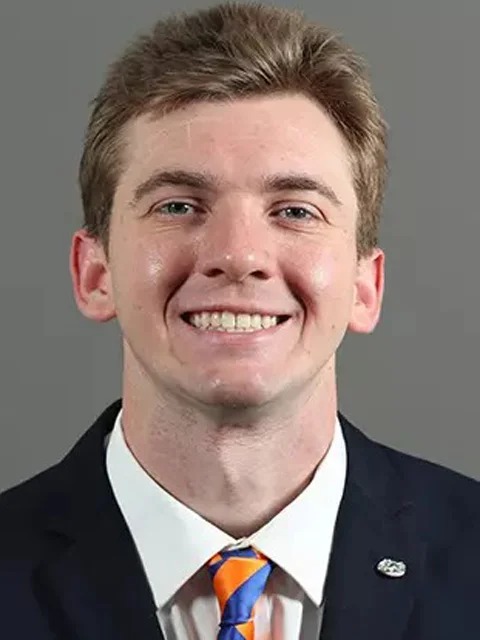
In a move that has sent shockwaves through the college football world, Texas A&M legend Johnny Manziel, the electrifying quarterback once known as “Johnny Football,” has officially bought a stake in the Texas A&M Aggies, becoming a co-owner of the team where his name is forever etched in blood, sweat, and endless applause. This is not just a return to College Station; it’s a homecoming of epic proportions, a reunion that has left Aggieland buzzing with excitement and disbelief. From an icon on the field to a shaper of the team’s future, Manziel has returned not to play, but to lead with the heart of a warrior who has never truly left the gridiron.
The announcement, made early this morning by Texas A&M University’s athletic department, marks a historic moment for the Aggies and college football at large. Manziel, the 2012 Heisman Trophy winner and one of the most dynamic players in NCAA history, is no stranger to making headlines. His college career was a whirlwind of jaw-dropping plays, record-breaking performances, and a larger-than-life persona that captivated fans and redefined Texas A&M’s place in the national spotlight. Now, at 32, Manziel is back—not in pads, but in a suit, wielding influence and vision to guide the program that made him a legend.
Johnny Manziel’s journey to this point has been anything but conventional. As a freshman in 2012, he took the SEC by storm, leading Texas A&M to an 11-2 record, including a stunning upset over No. 1 Alabama in Tuscaloosa. His 4,600 total yards and Heisman Trophy win as a freshman cemented his status as a generational talent. Off the field, however, Manziel’s life was a rollercoaster of controversies, from partying scandals to a brief NFL career that never matched his college brilliance. After stints in the CFL, AAF, and Fan Controlled Football, Manziel stepped away from playing in 2022, focusing instead on personal growth and entrepreneurial ventures, including his “Money Bar” nightclub in College Station’s Northgate district.
The decision to buy into Texas A&M as a co-owner is a bold new chapter for Manziel, one that reflects his deep connection to the university and its fans. “This place gave me everything,” Manziel said in a statement. “The 12th Man, the roar of Kyle Field, the brotherhood—it’s in my blood. I’m not here to relive the past; I’m here to build a future that makes every Aggie proud.” His investment is not just financial but deeply personal, a chance to give back to the program that launched him into stardom and to shape its trajectory in an era defined by NIL deals, transfer portals, and unprecedented change in college athletics.
Manziel’s role as co-owner will see him working closely with head coach Mike Elko and the athletic department to enhance recruiting, boost player development, and elevate the Aggies’ brand. Sources close to the program suggest Manziel’s involvement will focus on leveraging his star power to attract top talent, particularly in the NIL era, where his name still carries immense weight. “Johnny knows what it takes to win at this level,” Elko said. “His passion, his experience, and his vision will be invaluable as we aim for a national championship.”
The reaction in College Station has been nothing short of electric. Social media is ablaze with Aggie fans celebrating the return of their prodigal son. “Johnny Football as a co-owner? This is bigger than any touchdown he ever scored,” tweeted one fan. Another wrote, “Kyle Field is about to be the loudest it’s ever been. Gig ‘em!” The sentiment echoes a broader truth: Manziel’s return is a galvanizing force, uniting generations of Aggies who see him as the embodiment of their program’s grit and glory.
Critics, however, are quick to point out the risks. Manziel’s off-field struggles, including substance abuse and legal issues, have been well-documented. Some question whether his larger-than-life persona could overshadow the team’s focus. Yet, those close to Manziel insist he’s a changed man, matured by life’s highs and lows. His recent ventures, like the “Glory Daze” podcast and his Northgate nightclub, show a savvy entrepreneur with a knack for staying relevant. “Johnny’s learned from his mistakes,” said co-owner J.D. Ybanez. “He’s all in for A&M, and he’s ready to prove it.”
Manziel’s ownership stake also comes at a pivotal time for college football. With the NCAA’s evolving landscape—NIL deals, revenue-sharing models, and conference realignments—his influence could position Texas A&M as a powerhouse. His name alone drew $740 million in donations and a 9.7% spike in university applications after his freshman year, a testament to his marketability. Now, as a co-owner, Manziel could redefine what it means to be a stakeholder in a college program, blending business acumen with his Aggie pride.
For the 12th Man, this is more than a business deal; it’s a love letter to Texas A&M. Manziel’s return isn’t about recapturing past glory but about forging a new legacy. As he steps into this role, the echoes of his electrifying runs and Heisman moments linger, but it’s his vision for the future that has Aggieland holding its breath. The warrior who once lit up Kyle Field is back, not to play, but to lead—and the entire city is in awe.


